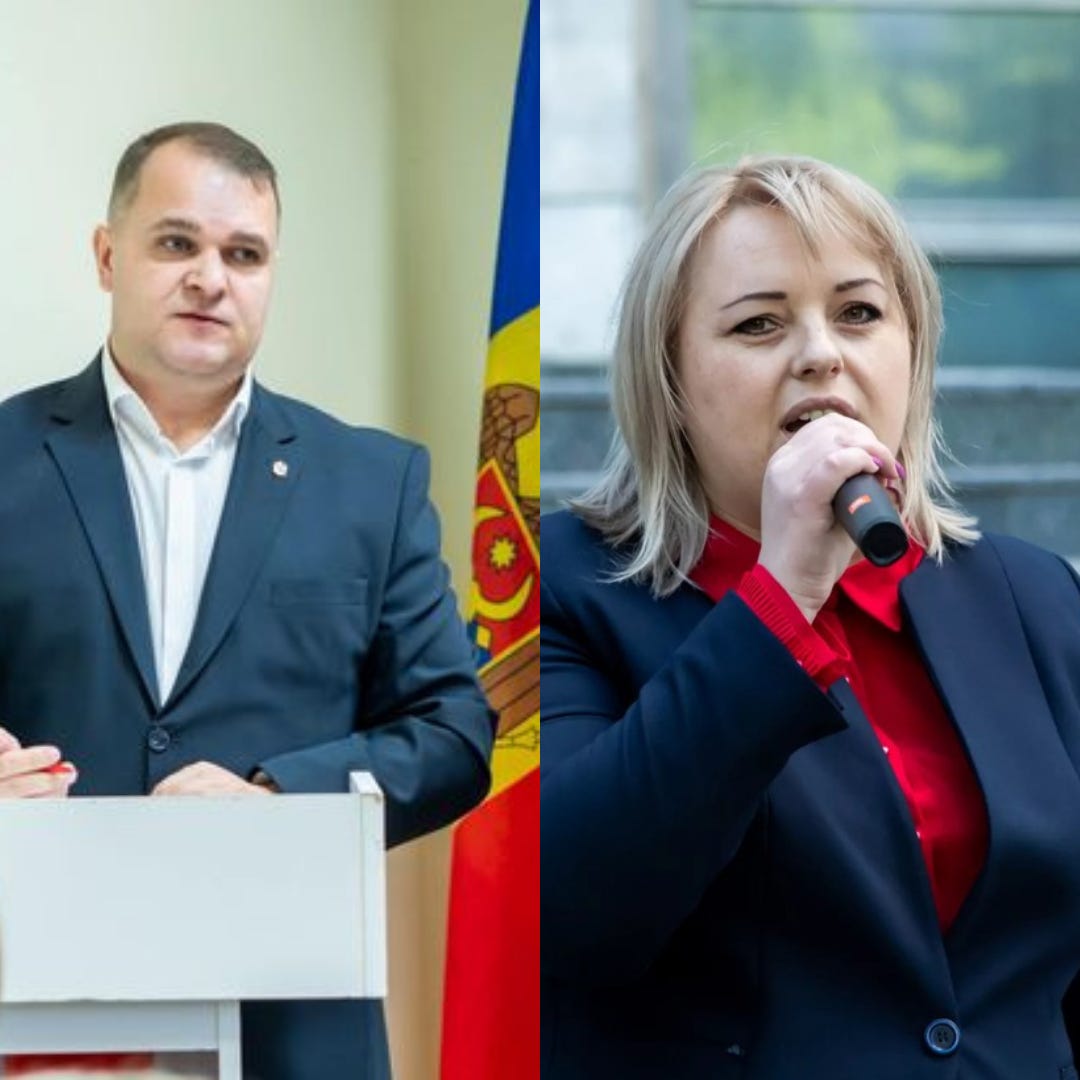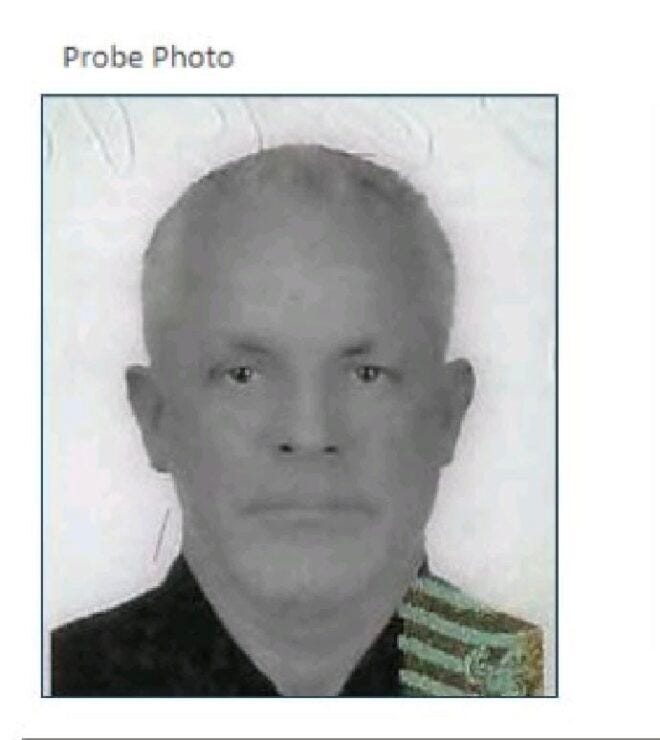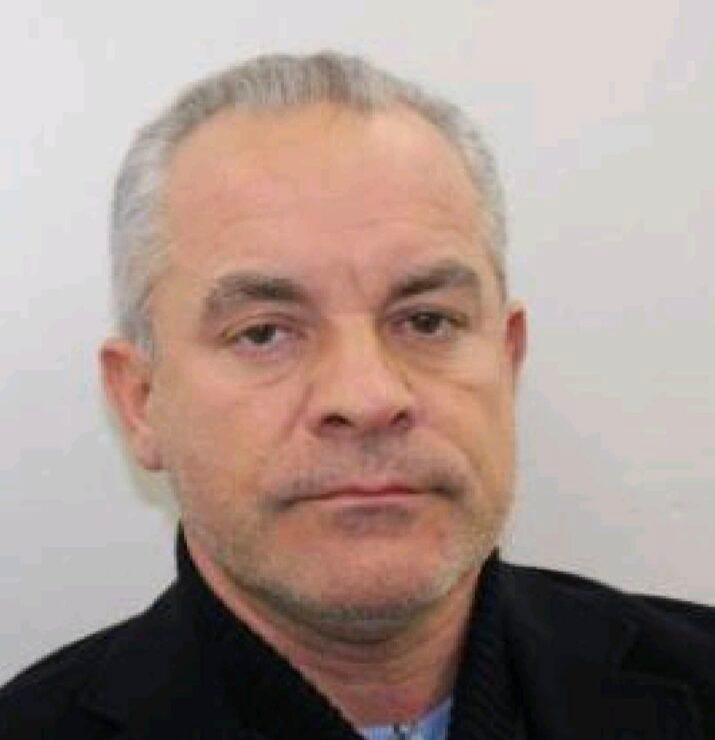Hi Everyone! After a few relatively slow weeks the pace of news is back with lots of important stories from the last 7 days. Sometimes with longer emails you might find that it won’t all load in your inbox. When this happens just click on the header to go to the Moldova Matters website, or consider downloading the Substack app and reader!
Multiple MP’s Convicted of Corruption Disappear Ahead of Sentencing
On March 19th MP Alexandr Nesterovschi was sentenced to 12 years in prison after being convicted of charges related to corruption and illicit party financing. Prosecutors had previously asked for a sentence of 10 years and 9 months. In addition to the prison sentence he faces a fine of 500,000 lei, a ban on holding public office for 12 years and asset confiscations of approximately $35,000.
Nesterovschi did not show up in court for his sentencing and was added to an international wanted list on March 20th.
Later, reports emerged that MP Irina Lozovan and her husband Pavel Gîrleanu are also missing. They had been tried in a separate but related case and were due to be sentenced on March 31st. Prosecutors have asked the judge to sentence Lozovan to 6 years in prison.

Who are Alexandr Nesterovschi and Irina Lozovan?
To understand this story we have to go back to March 2023 when Socialist Party MPs Alexandr Nesterovschi and Irina Lozovan announced that they were leaving the Socialists to become “independent” MPs affiliated with Ilan Shor’s political movement. Moldova Matters covered the defection in an article at the time.
Their story continued in September 2023 when then Interim Prosecutor General Ion Munteanu went to parliament to request the lifting of parliamentary immunity to allow for the arrest of both MPs. He presented 5 charges all related to “illegal political financing on behalf of a criminal group.” Parliament lifted their immunity and they were arrested. What followed was a shocking story alleging that Ilan Shor had purchased the loyalty of these formerly Socialist MPs and tasked them with buying up additional politicians and small political parties. Nesterovschi was tasked with buying a credible pro-European politician to create a Shor-controlled pro-EU party. The politician that he approached was Alina Spataru of ALDE and that was a mistake. Spataru informed Anti-Corruption Prosecutors of the proposal and then went undercover aiding a broad investigation into the Shor network. She even traveled to Israel to meet with Ilan Shor while wearing a wire. We detailed this story - dubbed by the media “Arina 007” at the time.
Where are Alexandr Nesterovschi and Irina Lozovan?
On the March 19th, shortly before he was sentenced, Russian state news agency RIA Novosti announced that Alexandr Nesterovschi had been made a Russian citizen. When he failed to show up in court speculation turned to whether he took shelter at the Russian embassy or crossed the “border” into Transnistria. The authorities later confirmed that Nesterovschi had not crossed the state border and that neither Romania nor Ukraine had any record of him crossing, or attempting to cross, into their jurisdictions.
There have been no public announcement on the whereabouts of Irina Lozovan and Pavel Gîrleanu whose lawyer says that they will be in court on March 31st. They have been banned from leaving the country, just like Alexandr Nesterovschi, and otherwise no one seems to know where they are.
Note: I’ll add a short explainer of the nature of the Moldova-Transnistria “border” as a footnote because it explains both one way they could have escaped… and how prohibitions on leaving the country are effectively an honor system1.
Arina Spataru came to parliament and staged a one woman protest with a sign saying "Where is Nesterovschi?"
Bomb Threat at the Russian Embassy?
Also on March 19th police reported that a bomb threat had been called in against the Russian Embassy. The building was cordoned off and checked by the bomb squad until they eventually cleared it as safe.
The Russian Foreign Ministry called this action a “blockade” and "a flagrant violation of the Vienna Convention on Diplomatic Relations." They said that police blocked the Russian Ambassador and staff from the Embassy for several hours and prevented families inside of the complex from leaving2. They lodged a “strong protest” and particularly noted that they received no direct threats or official notifications from the police about the bomb.
The Moldovan Foreign Ministry responded by saying that "The authorities took measures in accordance with the law and international obligations after receiving a signal about a possible threat to the embassy." They called on the Russian representatives not to “distort reality.”
Coincidence? There has been speculation that the timing of these actions is rather suspicious. Within a few hours Russia announces that it gave Alexandr Nesterovschi citizenship, he fails to show up to court to begin serving a prison sentence and Moldovan police cordon off the Russian embassy and search elements of the grounds pursuing an alleged bomb threat. We’ll probably never know if there is a connection but the news certainly raised eyebrows in Chisinau.
Political Updates
Here’s a roundup of the top politics stories of the week:
PAS MPs propose legislation against spreading disinformation online. The proposed language was included in a set of amendments to legislation seeking to tighten penalties for election subversion, vote buying and other forms of electoral corruption. The new amendments would add fines up to 5000 lei for deliberately spreading “false or misleading information” online. The amendments include carveouts allowing for the discussion of disinformation narratives in a satyrical or explanatory way - so long as the poster identified the information as false. These amendments have caused a major backlash with the Center for Independent Journalism (CJI) calling them out as a threat to freedom of speech. Human Rights NGO Promo-LEX called on parliament to abandon the proposals saying that the language of the law lacked clarity and was overly broad. Blowback against this attempt to potentially criminalize speech caused PAS MP Veronica Rosca to propose tabling the amendments at a public consultation on the wider law so that they can be retuned to after more consideration. For now, the amendments remain tabled.
Old politicians, new parties. Former Democratic Party leader Marian Lupu announced that he would return to politics and take over leadership of the Respect Moldova party. Lupu first entered politics in the late 90s and early 2000s with the Communist Party before moving to the Democrats as their leader and later serving as Interim President during the first Alliance for European Integration. Also reappearing is recent presidential-hopeful Victoria Furtuna who announced that she has become leader of the Moldova Mare Party. Furtuna, who stood as one of Shor’s candidates in the presidential elections, claimed that she is now in support of EU integration and stood by the statute of the party she now heads which supports it. This comes on the heels of her recently calling the EU’s €1.9 billion euro support package for Moldova “financial slavery” and posting a picture of herself standing in front of a portrait of Putin only 4 days before the announcement.
Moldova’s National Food Safety Agency (ANSA) announced that African swine fever has been detected at one of the largest pig farms in Anenii Noi. The agency ordered the culling of 65,000 pigs in order to eliminate the outbreak. Over 3 days the farm and local authorities responding to the emergency culled 10,000 pigs working around the clock. ANSA reminds the public that while the virus is nearly 100% lethal for pigs it does not affect humans. They are offering people €50 for reporting dead boars and wild pigs found in forests or near human settlements. The virus can persist for a long time in dead animals and largely spreads from wild boar to domesticated pig farms. Locals in Anenii Noi held protests worrying that the burials of 65,000 pigs near their towns would lead to a stench in warm weather or impact the water supply. Minister of Agriculture Ludmila Catlabuga as well as the director of ANSA visited the cleanup effort and assured residents that all pigs were being disposed of in accordance with local and international veterinary and sanitary standards and that there would be no threat to the groundwater.
Debates about a state run Russian TV channel continue. The proposal for a new “Moldova 3” (M3) state news channel in Russian has continued to polarize society but PAS politicians and leaders remain committed to the idea. PAS MP’s who sponsored the bill have now said that M3 could be fully financed through grants from external donors and that negotiations are ongoing. No details about the donors were presented. On her video-podcast President Maia Sandu spoke about the need for the channel saying:
"One of the complaints I heard during the election campaign was about this very topic. Russian-speaking and other minorities who do not know Romanian said that they do not have alternative sources of information and have to get information from external sources, such as Russian ones. Indeed, people should know Romanian, the state language of Moldova. But in the current context, when they are trying to divide society, this opposition will not help us if we do not have access to information. We must develop Romanian language courses and encourage citizens who do not know it to enroll in these courses. But at the same time, we must build and mend bridges, because we live in a society where we all want peace."
Parliament is considering a bill to ban parties that are successors of previously banned parties. Under the bill, a party that forms with politicians from a banned party, utilizes identical or similar symbols or proclaims the same program / ideology could be banned. The stated goal of the bill is to crack down on pro-election corruption. Under this definition Shor’s successor parties - Chance, Renaissance and the Pobeda (Victory) Block could be banned.
Foreign Affairs
Here’s a roundup of the top international affairs stories of the week:
Czech President Petr Pavel visited Moldova. During his visit he discussed EU integration and regional security questions with President Sandu and Prime Minister Recean. President Sandu said of Czech support “by helping Ukraine, the Czech Republic is helping Moldova, since our security is closely linked to the security of our neighbors."
The United States has “indefinitely” postponed Romania’s entry into the US Visa Waiver Program. This followed a decision in January to grant Romanian citizens visa-free travel to the United States - a decision that was set to take effect at the end of March. Romania and Bulgaria are the only EU countries whose citizens still require a visa to travel to the United States. The news comes the same day as a bizarre Fox News story which cherry picks data to imply that Romanians make up a large percentage of illegal border crossings from Canada. The story seems to equally blame Romanians and Canada for illegal crossings and quotes a border patrol agent saying that entry into the Visa Waiver Program would result in Romanians coming in easier and overstaying their visas. This decision impacts the large number of Moldovans who are dual citizens.
The US Embassy in Moldova made a series of posts aggressively warning against illegally entering the United States. One said “Illegal entry into the United States is not an option. Those who violate American law will be repatriated to their country or face criminal charges.” Another featured Secretary of Homeland Security Kristi Noem in slickly produced video where she warns people not to try and enter the United States illegally as videos of violent arrests and deportations play out in the background. Both posts elicited lots of comments mocking the strange post3.
The EU has prepared a €40 million euro military support package for Moldova. The equipment provided will be non-lethal in nature and includes 33 tactical high-mobility vehicles to replace Soviet-era equipment in 3 infantry brigades. There will also be communications equipment including support for helping air defense radar’s coordinate. The original package was for €60 million euros and included 8 short range air defense missile launchers and 24 missiles. This delivery has been postponed. Moldova currently has zero air defense capability.
Crime, Corruption and Justice Reform
Here’s a roundup of the top stories (other than Nesterovschi and Lozovan) in the justice sector from the past week:
Vladimir Plahotniuc is put on trial in absentia in Moscow. The Russian court accuses the fugitive Moldovan oligarch of embezzling €2.2 billion euros from Russia through the “Russian Laundromat” (which Russian’s call “the Moldovan Scheme”). Prosecutors allege that Plaha worked with Vyacheslav Platon to create an organized criminal enterprise. Platon has already been sentenced in absentia to 20 years in a maximum security prison.
Moldova’s Prosecutor General says that the UK will begin considering extradition of Vyacheslav Platon in April. Until then a UK court has refused his petition for bail and ordered that he remain under house arrest pending his asylum claim and appeals.
Vladimir Plahotniuc Gonzalez? Interpol has updated their international arrest warrant for the fugitive Moldovan oligarch stating that he has Mexican citizenship. Previously, he was known to have Moldovan, Russian and Romanian citizenships, held under a variety of aliases. Apparently he now has a Mexican passport under the surname Gonzalez. Moldovan authorities say that there is currently no indication that he has ever traveled on the Mexican passport, but noted that 2 weeks ago he used his real identity to enter Turkey. Turkish authorities have not responded to requests for clarification. Interpol also released 2 new photos of Plahotniuc, the first ones released since he fled Moldova in 2019.


On March 25th Bashkan Gutsul was detained at the Chisinau airport while trying to leave the country. According to Marina Tauber, who herself has been out of the country for some months, Gutsul was trying to fly to Istanbul for “work” and planned to return on March 30th. Prosecutors have not given clear reasons for her detention only saying that while passing through customs her passport was flagged by Anti-Corruption Police (CNA) and she was detained for 72 hours. Earlier on the same day the prosecution rested in their long running case against the Bashkan (and co-defendants) alleging illicit financing of Shor-linked political groups. The defense was set to begin their presentation of evidence next week. At the same time Bashkan Gutsul’s financial manager in her campaign, who now serves as deputy mayor of Orhei, was the target of searches in a new illicit financing case by the CNA.
Economics, Infrastructure and Energy
Here’s a roundup of the top stories of the week:
Moldova is in a recession. The National Bureau of Statistics (NBS) has released preliminary 2024 data which showed contracting GDP growth for the last 2 quarters of 2024 - the technical definition of a recession. Overall the data showed 0.1% GDP growth over 2024 compared to 2023. Economic expert Mihaela Sirițanu, speaking to ZdG attributed the lack of growth to the ongoing disruption of the war - especially a lack of investor confidence, energy prices driving inflation, outbound labor migration and climate change driving agricultural crises. PAS MP and Chairman of the Parliamentary Committee on Economy and Budget Radu Marian contested whether or not the “R” word really applied suggesting instead that 2024 overall looked like “stagnation.” At the same time he accepted that “technically” the country was in a recession4.
A new study finds that Europe is among the most impacted regions by climate change - and Moldova is one of the most impacted in Europe. The study compared current average temperatures to the 1951-1980 average. Worldwide we have seen temperature rises of 1.77 C. Europe has seen a rise of 2.44 C. The worst impacted countries in Europe - Ukraine, Moldova and Switzerland have seen a rise of 2.9 C. Warmer temperatures in summer and longer droughts have been a major driver of Moldova’s economic disruption over the past few years and at a macro level this trend is set to continue.
Transnistrian “leader” Vadim Krasnoselsky admitted to Russian state-operated news agency RIA Novosti that the region is using some of their gas for industrial operations. This would be in contravention of the current transit agreement with Chisinau and should theoretically result in new taxes and fees. The head of the EU Delegation in Moldova, Jānis Mazēiks, contradicted this news saying that he traveled to Transnistria for talks on March 20th and toured the Moldovan Metallurgical Plant (MMZ) and that these enterprises were not operating. Alexander Slusari, member of the board of state company Energocom, called this tour a “Soviet show-off” and said that the EU diplomat had been fooled. He called on Mazēiks to go instead to the rail yards where steel and cement were being loaded on trains for export and not to be fooled by factory administrators sending people home for a few hours. The Moldovan government has not explicitly taken a position on allegations that manufacturing has resumed in the region.
Chisinau has ended central heating for the winter. Warm weather has led to a shutdown of the Thermoelectric heating system though hot water production will continue. This will result in a drop in domestic electricity production but sunny weather has also led to an uptick in solar and renewable production. For now there have been no reports that warm weather will bring a renewed crisis.
The Moldovan towns of Varnita and Copanca have been connected to the Moldovan electric grid. These towns were previously only connected to Transnistria and thus suffered rolling blackouts through the winter months. Moldovan provider Premier Energy connected both communities with a line that will be used as a “backup” in case of future crises. Residents of the towns previously protested the construction of these lines preferring periodic power cuts to leaving the heavily subsidized Transnistrian energy market.
To understand the Moldova-Transnistria “border” it is critical to remember that no country, not even Russia, recognizes Transnistria’s independence. In order to maintain Moldova’s legal claim to the territory the country cannot set up customs and border points with Transnistria which would de-facto recognize a border. On the other hand, Transnistria has a type of border crossing where they stamp passports and maintain their fiction of being an independent state.
Ukraine meanwhile has border crossings with Transnistria which basically assume (officially) that the officials on the other side are Moldovan. They have traditionally (pre-war) been very “lax” with their border enforcement and a healthy smuggling pipeline developed between the port of Odesa, Transnistria and on to Moldova. In response to this Moldova set up so-called “internal customs checkpoints” along the roads leading to Transnistria. These checkpoints can stop and search vehicles coming from Transnistria to the rest of Moldova looking for contraband and allowing for official declarations. In practice this does not involve looking at passports or documents for people - just stopping trucks and occasionally cars to look for goods.
The bottom line here is that Moldova has no process to check people who are entering Transnistria at all. If the Transnistrians are happy to let you in you can go there… and the Chisinau authorities cannot get you back.
As court cases drag on and on suspects go through the same track - detained (jail), house arrest, “judicial control” (aka don’t leave the country) and finally “just whatever” (aka Marina Tauber’s regime). There don’t appear to be any ankle bracelets or similar so anyone welcome in Transnistria always has an out.
Russian diplomats almost all live “on compound”
My personal favorite was from Nadejda Mocanu which read:
”Are you ... ok, U.S. Embassy Moldova? Blink twice if you've been abducted and forced to post these unkind, undiplomatic messages. We'll figure something out.”
Author’s Note: To my knowledge no one has modeled the effect on Moldova’s GDP of the US cutting all foreign aid to the country. Some napkin math says that USAID and other programs accounted for around 0.7% of GDP in 2024. Considering the multiplier effect of this spending actual impacts would likely be more than 1%. The EU’s €1.9 billion euro investment should offset some of this loss (depending on how it is spent) but it is worth noting what a major change 2025 will be compared to 2024.






I went to Transnistria last Sunday, my first visit, on an organised tour.
It took about 80- minutes to cross the border going in, but very fast coming back.
So I suspect the Transnistrians are probably not bothering to track who enters Moldova either?
Either that or they were uncharacteristically efficient.
“The stated goal of the bill is to crack down on pro-election corruption. Under this definition Shor’s successor parties - Chance, Renaissance and the Pobeda (Victory) Block could be banned.”
Does this mean PCRM is also going to be banned as PCM was banned?